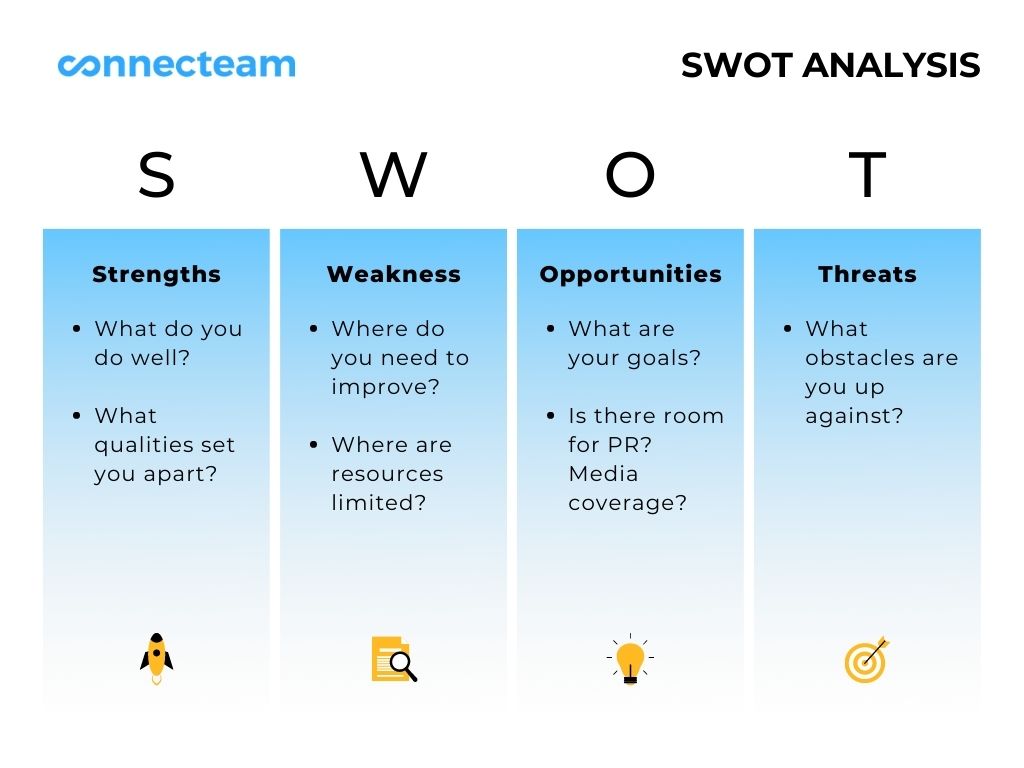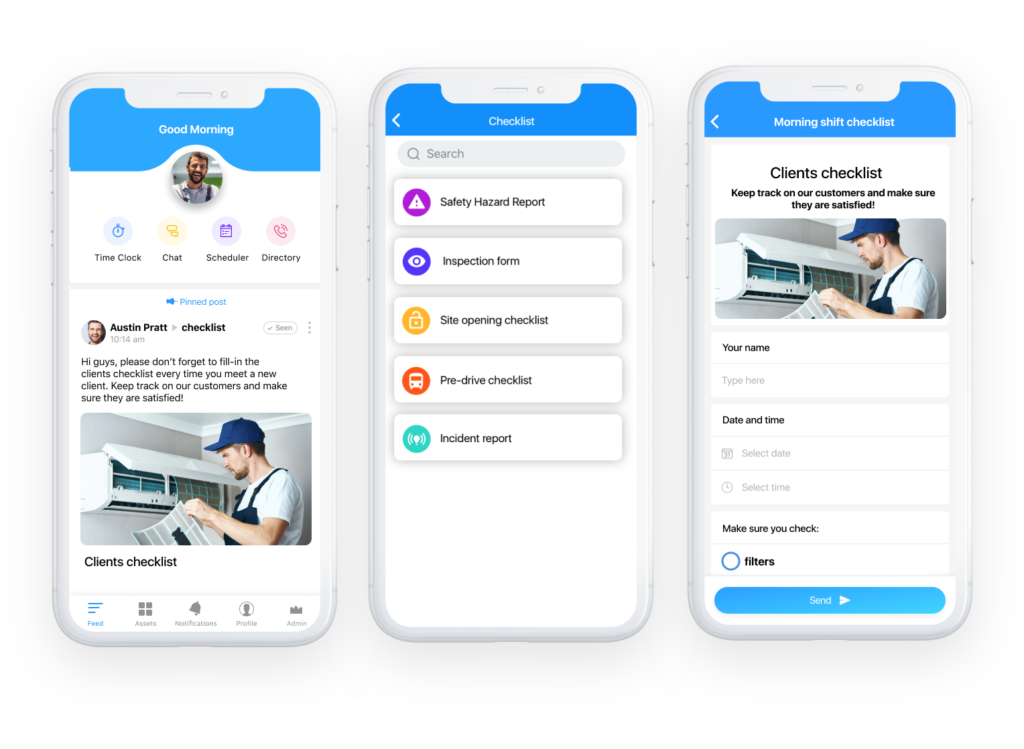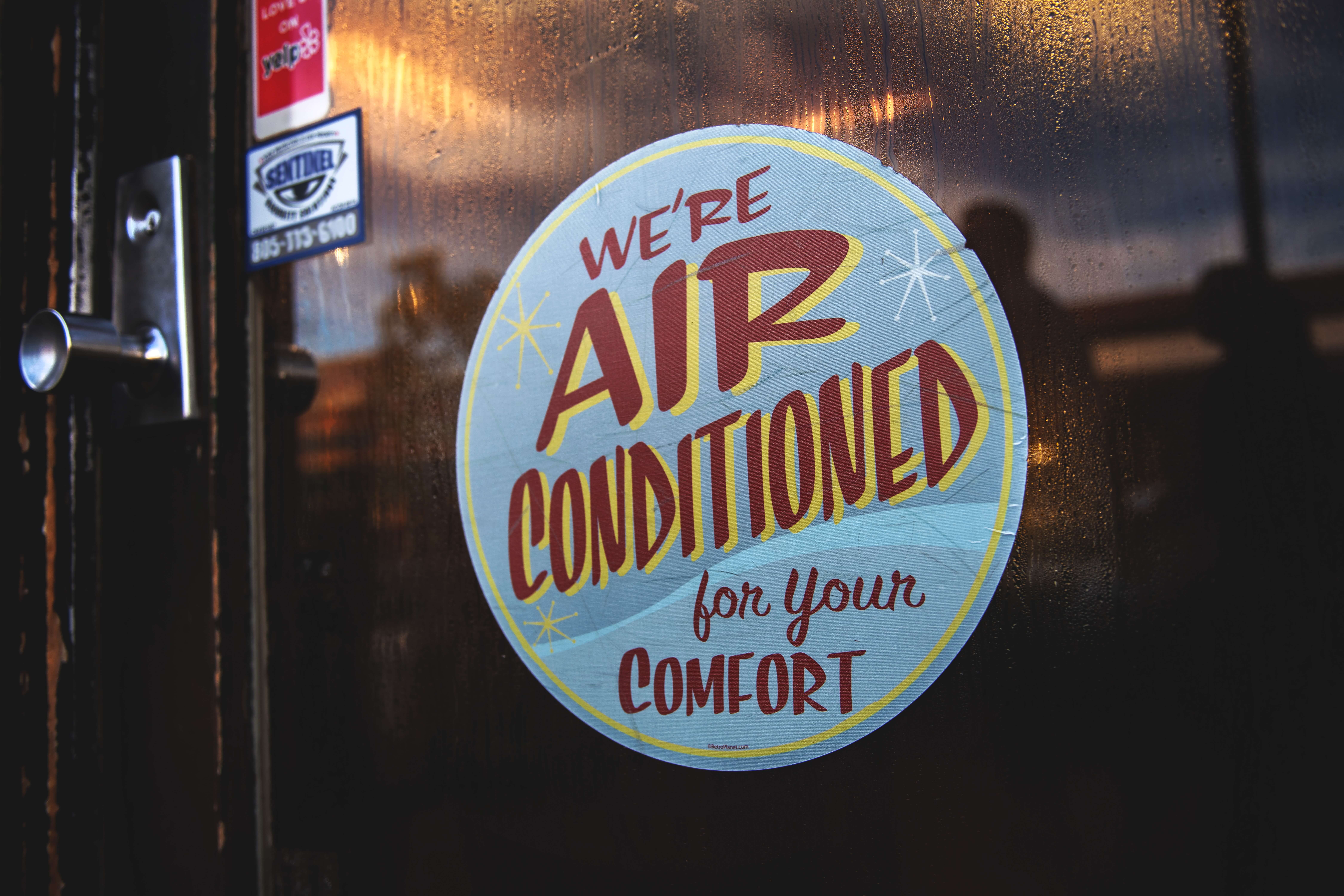Interested in starting your own HVAC business? Follow these 7 tips to ensure success from start to finish.
If you’re an HVAC specialist who’s always dreamed of being your own boss, there is no time like the present to start your own HVAC business. Starting an HVAC business is more lucrative than ever for people who possess this skill set. After all, the number of housing units that require this type of service will only grow in the years to come.
In 2018, the HVAC business was a $94 billion industry in the United States alone. During the latter part of the 2010s, the number of businesses providing HVAC services grew by 2.6%, while the number of employees in those businesses grew by 4.5%. Given those numbers, it’s the perfect time to start your own business and become your own boss.
But it’s not all about the dough, if we’re being honest. You also need the technical skills and knowledge. Could I watch a handful of YouTube videos and fix my cooling filters? Knowing myself, there’s no chance! But when you’re an HVAC pro, you are fully equipped to handle installation and troubleshooting skills for heating and cooling systems. You have all the technical skills required, plus your knowledge of safety procedures, handling HVAC equipment, and understanding of local codes and regulations is no match for us mere mortals.
So, all that’s left is starting an HVAC business!
And when it comes to understanding how to start an HVAC business, it isn’t nearly as complicated or intimidating as it might seem on the surface. Let’s try to break down the process of starting an HVAC business and simplify it as much as possible.
Create a Killer Business Plan
The first step in starting your HVAC business is to create an awesome business plan. No matter the industry, nobody starts a successful business without planning things out ahead of time. This means making decisions about the market you plan to target. It means looking at some of your potential competitors. It means deciding how you want to structure your business, projecting the kind of revenue you might generate, and understanding the financial obligations you’ll have as a business owner.
It might sound like a lot of work, but sources like the Bureau of Labor and Chamber of Commerce can help you collect the data you need about the number of homes in your potential service area and the competing companies you’ll be up against. This will help you to figure out the service area you’ll want to cover. Perhaps you’ll want to specialize in a specific area that’s underserved. You might also need to cast a wide net to find more customers. All this is stuff that you’ll be able to sort out when putting together your business plan.

Your business plan will also help you to understand the competition. Are there other HVAC businesses in the area that you want to target? Are they chains or locally-owned businesses? What are their prices, and is their business thriving at the moment? These are all questions that should be answered in your business plan.
Finally, you will use your business plan to lay out your financial situation. You will want to separate your personal money from the business with a separate bank account. And, don’t forget to consider a suitable salary for yourself as a business owner, based on your experience and expertise.
Raise Capital
Odds are, you aren’t going to have enough money in your personal bank account to get a business off the ground. Even if you do, that may not be the best idea because, naturally, it carries a lot of personal risks. Instead, as a prospective business owner, you will look for ways to raise the money to start a business – this is a pretty key step as you look at how to start a HVAC business.
Typically, seeking a business loan from a bank or credit union is a good place to start – this is part of the reason why you’ll need a strong business plan. Financial institutions don’t just hand out loans on a whim. They need to know that you’ve done your homework and have a plan in place to create a viable business that will allow you to pay back the loan. While there are other factors at play, having a good business plan can help convince a bank or credit union that it’s worthwhile for them to give you a loan.
Of course, there are other methods of raising capital outside of banks. It’s possible to seek capital from people who want to be silent partners. Essentially, they give you money to help get off the ground, and you start giving them a share of your revenue once the business becomes profitable. Most business owners will start by asking friends and family, but it’s possible to find other investors as well.
Find and Train the Right People
During the early days of your business, as an expert in the field, you might be making many house calls and doing a lot of the servicing yourself. However, as your HVAC business starts to grow, it will become unavoidable to hire other HVAC technicians. You just have to make sure you hire the right people.
While it might be tempting, you don’t want to hire just anybody who has the technical skills you need.
- Think about the type of business you want to build and the culture you want inside the company.
- Do prospective employees share your values?
- Are they going to buy into the mission of the business?
- Are they going to work hard to make the business better, or are they out for themselves?
Nowadays, there are so many job boards available that it’s not difficult to find candidates, rather the right candidate. For this reason, it’s important to have a clear idea of what you want in an employee and write up a job ad that reflects that. Keep in mind that you’ll be training these employees to work the way you want them to work, so it’s vital to find people who will be receptive to that training and fit into the type of HVAC business you want to build.
Digitize Your Training Process
Set your team up for success with up-to-date and direct access to all training materials while on the go.
Market Your New Business
On the surface, running an HVAC business might sound simple. But marketing your HVAC business is more complicated than ever, especially if there is a lot of competition in your area. Ideally, you will include a marketing plan in your initial plan so that you’re not starting from scratch when the time comes to market your business. And make sure that marketing plan includes building an efficient website!
At this point, understanding your target customers and your competitors from the very start comes in handy. Most companies will perform a SWOT analysis in which they take a close look at the company’s strengths, weaknesses, opportunities, and threats. Based on the information gathered during the SWOT analysis, you should be able to create a plan for the best ways to market your business.

Of course, what that plan will entail depends on your business.
Understanding your ideal customer is only part of the equation. Some companies try to create a strong online presence. Some will have a list of leads or rely on word of mouth and positive reviews. Others will use social media or try to create organic leads with SEO or PPC campaigns. There are plenty of options; it’s just a matter of finding the right one for your business.
Set Your Pricing
Ultimately, the prices you charge customers for your services will play a huge role in whether or not your business succeeds. So, stop thinking about how to start a HVAC business right now and put on your money-making hat for a second.
This will take some planning and may require some trial and error before you get it right. Hopefully, you will have worked out a lot of your price points in your initial business plan.
Naturally, there are a lot of factors to consider, specifically the costs of running your business.
- What are your overhead costs? This includes an office, as well as tools, trucks, and other costs of doing business.
- How much are you spending on marketing to acquire new customers?
- How much in wages do you need to promise your employees to attract quality workers? What’s your pay period?
- Perhaps most importantly, what are your direct competitors charging?
These are just some of the factors that need to be considered when sorting out your pricing.
Choose the Right Tools
If you’re still a lone wolf running your HVAC business solo then you likely use an invoicing system like Zoho and a communication tool to connect with your clients, like WhatsApp.
Additionally, you may use tools like Buffer to post your social media communication, Zoom for video calls, and so on.
However, as you no longer need to worry about how to start a HVAC business, your focus shifts on how to grow your HVAC business. And as you begin to hire more HVAC professionals and land more clients, you need an all-in-one employee management software to efficiently manage the day-to-day operations.
Hundreds of HVAC professionals turn to Connecteam’s HVAC software solution as it offers a digital briefcase full of key features to easily manage the day to day operational needs.
For example, a GPS time tracker (and exporting timesheets for payroll), easy job and shift scheduling, fun communication with 1:1 or group chat, a social feed to keep everyone engaged, digital forms, checklists and reports that can be submitted while on the go, and so much more. Yes, really! Connecteam is a very robust tool that’s also easy to use (even if your team isn’t that tech-savvy), has a sleek interface, and is incredibly affordable.

What else does Connecteam specifically offer?
- Job and shift dispatching
- GPS time clock with geofence
- Knowledge center for onboarding and continued training
- Share installation manuals and guides in doc, PDF, video format, or as a link
- Collect incident and maintenance reports for equipment and vehicles and even end of job reports
- Collect and digitally sign daily mileage reports and gas reimbursement requests which employees can complete while on the go
- Enhance task management with one-off or team tasks and hold your employees accountable for installations they make
Read on to further learn how HVAC companies utilize Connecteam.
Set Your HVAC Business Up For Success
Manage every aspect of your HVAC business with a single solution.
Licensing, Insurance, and Permits
While this may not be the most exciting part of running a business or even how to start an HVAC business, things like insurance, licensing, and permits are unavoidable. All businesses, especially in the HVAC industry, need to have liability insurance.
There are also multiple levels of HVAC certification for individuals who work on HVAC systems. Do you and your employees have the proper licensing to work all possible jobs? Also, certain jobs in the HVAC industry will require permits. Do you know how to quickly secure those permits from local authorities so that there are no delays in giving customers the service they need?
The Bottom Line On How To Start A HVAC Business
Before we wrap up our tips on how to start an HVAC business in 2026, it’s important to mention one final thing. Once you’ve taken care of all of the above, you’ll be ready to launch your HVAC business.
Launch! (And Manage)
Now comes the fun part of starting an HVAC business; launch!
And then you can begin managing the ongoing operations of the business the way you want. From dictating the day-to-day operations to deciding the best avenues for growth, with the right steps, it won’t take long before you can reap the benefits of your business’s success.
Just remember that as the owner, the buck stops with you. There is no more safety net. You will ultimately be the one who determines if the business is a success or not. However, if you’ve created a business plan and done all of your due diligence in starting an HVAC business, you will be in great shape.
Set Your HVAC Business Up For Success
Manage every aspect of your HVAC business with a single solution.




